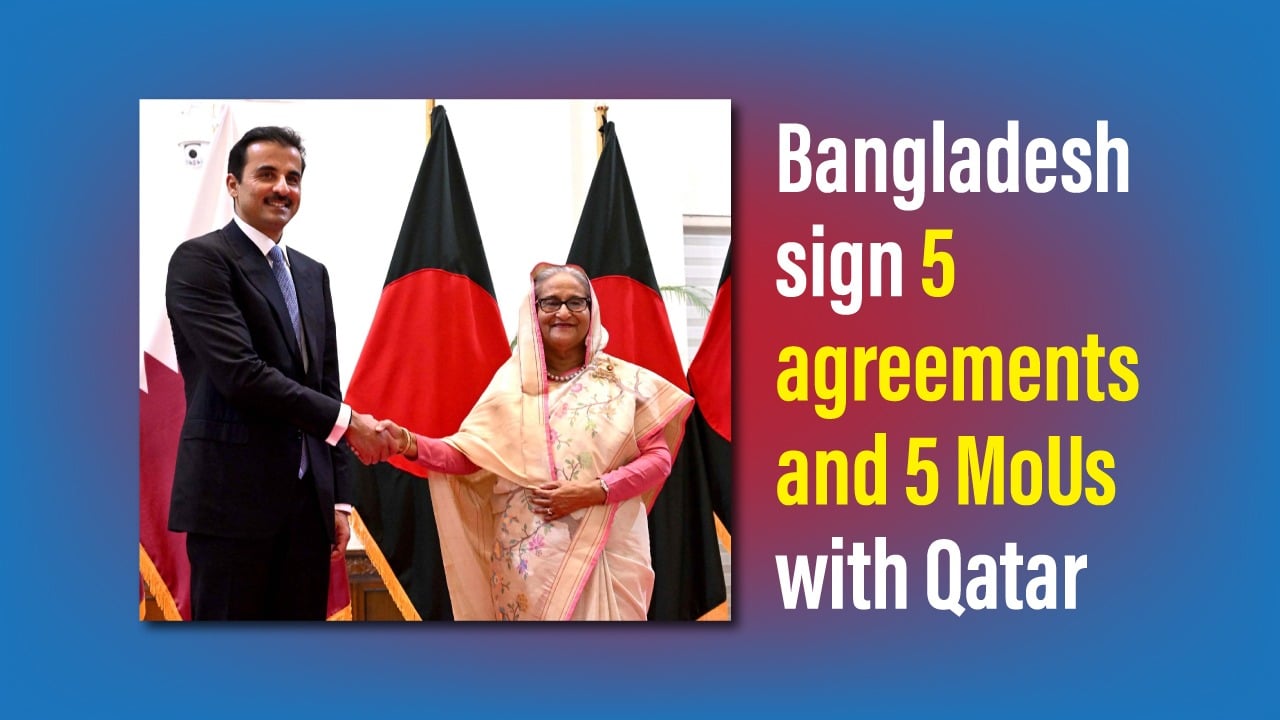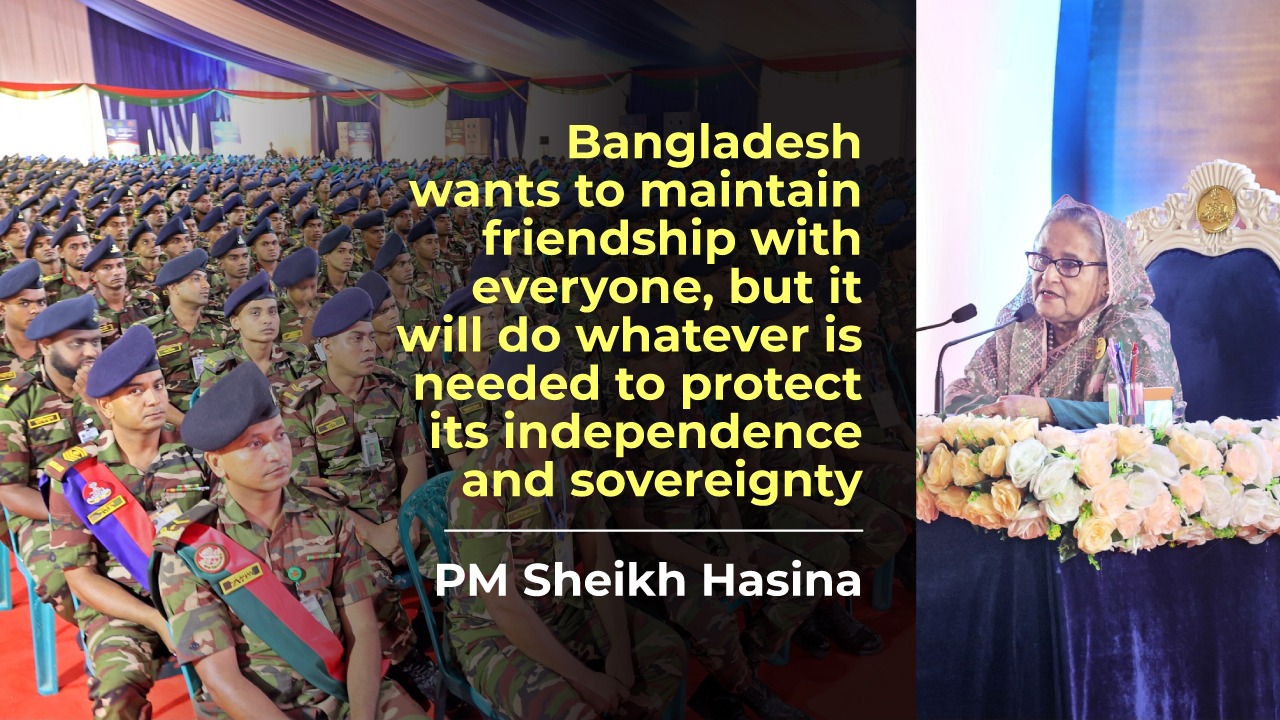774
Published on August 17, 2023Dr. Pranab Kumar Panday:
In the global spotlight, Bangladesh proudly waves its resplendent flag, a testament to the unyielding resolve and visionary genius embodied by its founding architect, the revered father of the nation, Bangabandhu Sheikh Mujibur Rahman. Across a millennium of Bengali history, his radiant presence stands as brilliant as a supernova. Bangabandhu's indelible impact finds its roots in the birth pangs of independent India and Pakistan in 1947. From his youthful beginnings, he embarked on a journey through the intricate corridors of politics, emerging as a precocious statesman whose wisdom defied his age. His engagement transcended mere involvement; it was an unwavering dedication to every political tide that surged within Pakistan's realm, shaping the very essence of his legacy. The crescendo of his influence reached its zenith during the pivotal year of 1952, synonymous with the language movement that echoed the aspirations of the Bengali populace. Bangabandhu, an unswerving advocate for linguistic rights and cultural heritage, rallied the masses with his charismatic magnetism. Under his guidance, the seeds of the Awami Muslim League were sown, a precursor to the monumental force it would become—the Awami League.
Spanning from the pivotal year of 1952 to the transformative era of 1971, Bangabandhu steadfastly immersed himself in the undulating currents of Bangladesh's movements. Guided by his sagacious wisdom, the people of Bengal united under his leadership, charting a course towards their engagement in the liberation war. His unwavering commitment propelled him to become the undisputed luminary of the Bengali populace, a beacon that illuminated their path.
After the independence of Bangladesh, upon his momentous return to Bangladesh on January 10, 1972, Bangabandhu embarked on an unwavering mission to propel the nation, scarred by the ravages of war, towards a revitalized future. With remarkable speed and determination, he orchestrated a sweeping transformation that spanned the economic, social, and political domains, marshaling both the nation's resources and its indomitable spirit to chart a trajectory of recovery.
In an astonishingly compressed timeframe, Bangabandhu orchestrated the creation of an extraordinary constitution for the fledgling nation. This framework, founded upon the pillars of nationalism, socialism, democracy, and secularism, was a vivid testament to his acute foresight and statesmanship. The remarkable achievement of crafting such a constitution within the constraints of a brief period underscored his monumental prowess, serving as an enduring model for newly sovereign countries grappling with the intricate intricacies of self-governance.
However, the annals of history are often marred by moments of profound tragedy, and one such somber date etched into the collective memory of Bangladesh is August 15, 1975. On this dark day, the nation was plunged into sorrow as the architect of its independence, Bangabandhu Sheikh Mujibur Rahman, along with his family, were brutally assassinated. Yet, amidst this agony, a remarkable transformation has unfolded—a transition from grief to the power of a nation.
The truest homage we can pay to Bangabandhu
is not confined to rituals or speeches. It lies
in the propagation of his ideals—ideals that
encapsulate the spirit of a
united, prosperous, adjust Bangladesh
For decades, August 15 went unnoticed by successive governments, failing to elicit the homage that Bangabandhu's memory deserved. It wasn't until 1996, following the resurgence of the Awami League to power, that the significance of this date was rightfully acknowledged as the 'National Mourning Day'. This belated recognition signified a turning point in the nation's trajectory, marking the beginning of a journey to honor Bangabandhu's legacy.
However, even in the wake of this acknowledgment, the day has at times been overshadowed by divergent agendas. Some fervent leaders and activists have diverted the focus from its true essence, inadvertently diluting the solemnity and sanctity that it deserves.
Bangabandhu's legacy is far from that of an individual—it has grown into an enduring institution. Through the tumultuous history of Bangladesh, adversaries aligned with the invading Pakistani forces repeatedly endeavored to obliterate Bangabandhu from the nation's narrative. Their attempts, however, were in vain, as Bangabandhu had taken root in the hearts of Bengalis, emerging as an indomitable symbol of resilience and unity.
It is incumbent upon us all to internalize the ideals Bangabandhu championed and imbue them within our own lives. Beyond personal enrichment, our collective responsibility extends to inspiring the upcoming generations to tread the path he carved. We must grasp the gravity of the loss that Bangladesh sustained on that fateful day—a loss that resonates with every Bengali.
August 15 should transcend ostentation. It should not be a day for conspicuous displays of authority through grandiose gatherings and elaborate events. Instead, it should become a day of quiet contemplation and self-reflection, where the nation channels the energy born from sorrow towards the larger goal of nation-building.
The truest homage we can pay to Bangabandhu is not confined to rituals or speeches. It lies in the propagation of his ideals—ideals that encapsulate the spirit of a united, prosperous, and just Bangladesh. His vision encompassed a Bangladesh that soared to greater heights, free from the shackles of oppression.
Sheikh Hasina, Bangabandhu's daughter, stands as a living testament to his legacy. Her journey mirrors the nation's evolution from the depths of despair to the pinnacles of power. As the leader of the Awami League, she guided the party to ascendancy, leading Bangladesh to remarkable progress on the global stage. Her dedication culminated in the conclusion of the trial for her father's assassination, rendering justice to a grievous chapter in the nation's history.
Amidst this narrative, we must remain vigilant against divisive forces. Echoes from the past, reminiscent of factions like the betrayals, have infiltrated the present. It is paramount to recognize their intent to challenge Sheikh Hasina's leadership. These groups, allied with various parties, often undermine the party's collective interests, endangering the unity that Bangabandhu worked tirelessly to instill.
Bangladesh's reverence for Bangabandhu and Sheikh Hasina is profound. Their names resound not just as individuals but as the embodiments of the nation's aspirations. This bond between leaders and citizens isn't fleeting—it is steadfast and enduring. It is this bond that has elevated Sheikh Hasina to a position of immense trust, making her the embodiment of hope and progress for the people of Bangladesh.
With each approaching August 15, we are summoned to transform grief into power—a power that propels the nation toward Bangabandhu's dream of a "Sonar Bengal", a land where unity, prosperity, and justice converge. This transformation, ignited by the ideals of the past, is the torchbearer we wield to illuminate the path toward a brighter, more robust Bangladesh.
Writer: Professor in the Department of Public Administration at the University of Rajshahi














